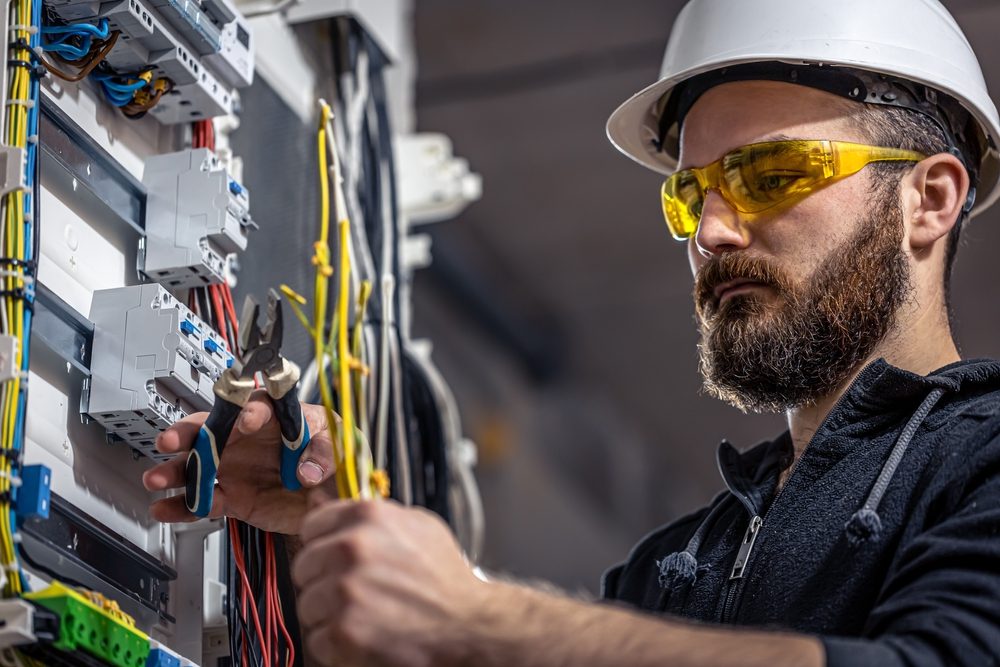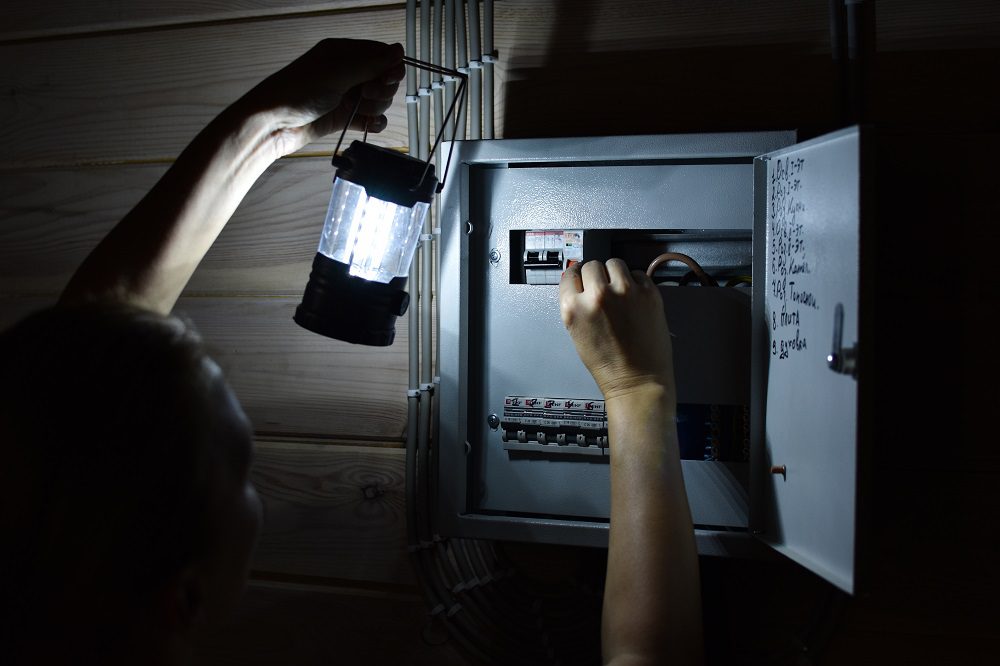
What Homeowners Should Know Before Rewiring an Older Charlotte House
Older Charlotte homes have charm that newer builds struggle to match. Many in Dilworth, Plaza Midwood, Wesley Heights, and NoDa still have original wiring hidden behind updated paint and fixtures. Age alone does not make a system unsafe, but time, added loads, and past quick fixes do. Before planning a rewire, it helps to understand what is in the walls, what code requires in Mecklenburg County, and how to stage the work so the household stays functional. Ewing Electric Co. approaches older homes with respect for character and an eye for safety, capacity, and clean workmanship.
How Charlotte’s housing stock shapes wiring decisions
Charlotte saw building booms in distinct eras. Homes from the 1920s and 30s may still have knob-and-tube in attic runs. Post-war houses often used two-prong receptacles and cloth-insulated cable. Split-levels from the 60s and 70s sometimes have aluminum branch circuits. Houses from the 80s and 90s can be short on circuits for today’s appliance loads. These timelines are not strict rules, but they guide what a licensed electrician expects to find during an initial walkthrough.
In practical terms, this means an older Myers Park bungalow might need entirely new branch circuits with arc-fault protection, while a 1988 ranch in Steele Creek may need a panel upgrade and new kitchen and laundry circuits rather than a full gut. A good assessment distinguishes between must-do safety work and strategic upgrades that deliver value.
Signs the wiring is past its limit
A few warning signs repeat across older Charlotte homes. Frequent tripped breakers, warm switch plates, flickering lights under load, two-prong outlets with no ground, mixed devices on the same circuit that dim when a microwave runs, or a panel filled with tandem breakers added over the years. Any outlet with burn marks or a breaker that trips and will not reset signals a hazard that should not wait.
The other common clue is lifestyle. Houses that ran on a single TV and a few lamps now support EV chargers, dual home offices, electric ranges, tankless water heaters, holiday lighting, and backyard studios. The electrical system must match the way the family lives, not the way the home was used decades ago.

What “rewiring” usually includes
Rewiring is often more than replacing cable. In Charlotte, a typical scope for a full rewire includes a service and panel evaluation, new grounded branch circuits with electrical wiring Charlotte NC AFCI/GFCI protection, updated device boxes and receptacles, dedicated circuits for kitchen and laundry, hardwired interconnected smoke and carbon monoxide alarms, and bonding and grounding upgrades. In bathrooms and exterior areas, weather-resistant and tamper-resistant devices are current code expectations. If the home still has knob-and-tube or aluminum branch circuits, those runs are replaced or properly remediated.
Homeowners sometimes picture walls fully open, but many projects can be done with surgical access. Skilled crews fish new cable through basements, crawlspaces, and attic spaces, then patch small openings. Full plaster removal is reserved for cases where access is impossible or when the homeowner is already remodeling.
Charlotte code and permitting, in plain terms
Mecklenburg County requires permits for circuit replacements, panel changes, and service upgrades. Inspections verify proper wire type, support, box fill, grounding electrodes, smoke and CO locations, and breaker protection. The permit process protects the home’s value and safety record, and it matters at resale. Ewing Electric Co. handles permits, coordinates inspections, and keeps the project aligned with the current North Carolina Electrical Code as adopted locally.

Two local realities matter. First, many neighborhoods have tight lots and shared driveways, so careful planning of temporary power and parking keeps neighbors happy. Second, some older homes in historic districts have rules for exterior meter bases and conduit visibility. An experienced team submits clean drawings and uses compliant, discreet installations.
Safety priorities that cannot wait
A few risks deserve immediate attention. Active aluminum branch circuits with outdated terminations can overheat under loose connections. Ungrounded two-prong outlets near electronics can damage equipment and increase shock risk. Bathrooms or kitchens without GFCI protection are a known hazard. Double-lugged breakers and corroded service conductors at the meter can signal hidden trouble. If any of these show up, a staged plan starts with hazard removal before aesthetics.
Planning the work around daily life
Rewiring can be staged by floor or by system. A common strategy is to address life-safety and heavy-load areas first: service and panel, kitchen, laundry, bathrooms, and bedrooms. Living rooms and lighting circuits follow. Most households in South End condos or small bungalows can keep power to key circuits each night, even during active workdays. For larger homes in Ballantyne or SouthPark, a one- to two-week schedule per phase is typical, with clear start and finish goals to reduce disruption.
Open communication beats speed promises. Crews should label new circuits as they go, provide daily updates, and leave spaces swept. Homeowners can help by clearing access to the panel, attic hatches, and closets where cable will be fished.
Budget ranges Charlotte owners actually see
Costs depend on size, access, and scope. In Charlotte, a full rewire of a 1,200–1,600 sq ft bungalow often lands in the mid to upper five figures, especially if plaster repair and a service upgrade are included. Larger two-story homes with finished basements and limited attic access run higher. Partial projects such as panel replacement with new kitchen and laundry circuits may fall at a third to half the cost of a full rewire. EV charger circuits usually add a modest amount if the panel has capacity; if not, the charger can be the catalyst for a panel change.
Real quotes follow a site visit, not a phone estimate. A trustworthy contractor shows line items: service size, panel brand, number of new circuits, device count, AFCI/GFCI protection, smoke/CO devices, and patching scope. Clarity helps homeowners compare apples to apples.
Copper, aluminum, and the right hardware
Charlotte inspectors accept copper branch circuits for new work. Where older aluminum branch circuits exist, the safe choices are full replacement or an approved remediation method using correct connectors and devices listed for aluminum. This is not a DIY crimp. Temperature rating, antioxidant, and torque matter. For panels and breakers, sticking with reputable brands and avoiding mismatched breakers saves headaches and keeps UL listings intact.
On device selection, tamper-resistant receptacles are standard. Kitchens typically use 20-amp small-appliance circuits with GFCI protection. Bedrooms need AFCI protection, often combined AFCI/GFCI where required. Exterior and crawlspace receptacles need in-use covers and weather-resistant devices. These details are mundane, but they pass inspections and protect people.
Preserving plaster, trim, and original character
Homeowners in older neighborhoods often worry about damage to plaster walls and original trim. A careful crew pre-maps runs to fish wires along stud bays, uses flexible bits from basements and attics, and cuts small, strategic openings near baseboards or closets for pulls. On finished projects, patched openings blend once painted. If the home already plans for new drywall, the electrician can coordinate rough-in before walls close, which lowers labor and speeds the job.

Energy loads that push panels over the edge
Charlotte’s growth brings modern loads. Common triggers for a service upgrade include a new induction range, a 50-amp EV charger in a SouthPark garage, a tankless water heater in University City, or a backyard workshop in Oakhurst. A 100-amp service that was fine for the original build often feels tight after these additions. Moving to a 200-amp service with a clean, labeled panel creates headroom for the next decade. Surge protection at the main panel is a smart add-on given frequent summer storms.
A realistic rewire day-by-day snapshot
A typical sequence for a 1,500 sq ft Plaza Midwood bungalow might look like this: day one, protect floors, map circuits, install temporary lighting where needed, and start panel work. Day two to four, pull new home runs to kitchen, laundry, and bath, replace boxes, and install GFCI/AFCI protection. Day five to seven, complete bedroom and living room circuits, hardwire smoke and CO devices, and test. Inspections follow, then patching and final device trims. Larger homes stretch this timeline, while condo work often condenses due to shorter runs and fewer exterior variables.
What to ask before hiring an electrician
- Can the company show recent permits for electrical wiring Charlotte NC projects like mine?
- How will they protect plaster and hardwoods, and who handles wall patches?
- What is included in the quote: panel brand, breaker types, device count, AFCI/GFCI, smoke/CO?
- Will they stage power so the refrigerator, HVAC, and a few rooms stay live each night?
- How do they handle change orders if hidden issues appear?
Clear answers here prevent the most common frustrations.
Why homeowners choose Ewing Electric Co.
Ewing Electric Co. focuses on electrical wiring Charlotte NC homeowners can trust in older housing stock. The team understands how to work cleanly in tight crawlspaces, protect plaster ceilings, and coordinate with historic district rules. Clients see labeled panels, thoughtful circuit layouts, straight switch lines, and tidy device trims. The company schedules inspections promptly and stays present for walkthroughs so questions get resolved on the spot.
When a partial rewire makes sense
Not every house needs a full gut. If the panel is modern, grounding is correct, and only certain rooms have outdated cable, a targeted rewire can deliver most of the safety benefit for less disruption. Kitchens, baths, laundry, and bedrooms often give the best return. Running a few dedicated circuits also stabilizes lighting and reduces nuisance trips. An honest assessment weighs risk, budget, and timing rather than pushing the biggest possible scope.
Practical prep for homeowners
Before crews arrive, clear attic access, pull items away from wall outlets, and mark any planned cabinet changes if a remodel is tied in. Share appliance specs, EV charger models, and any future plans like a backyard office or hot tub. A good electrician sizes conduits and panel space with these in mind. Pets should have a quiet room away from work areas, and cars should be moved to open driveway space for the service truck.
What success looks like after the rewire
A successful project ends with quiet breakers, solid grounds, consistent bright lighting, and dedicated circuits that keep the kitchen humming during holidays. Labels make sense, outlets are where people use them, and smoke and CO alarms test correctly throughout the home. The inspection sticker, permit closeout, and a clear invoice complete the record for resale and insurance.
Ready to talk through options for electrical wiring Charlotte NC? Ewing Electric Co. schedules on-site assessments across Dilworth, NoDa, Plaza Midwood, SouthPark, Steele Creek, and surrounding areas. Ask for a walkthrough, a written scope with itemized pricing, and a proposed timeline that fits the household. The team will help decide whether a full or staged rewire fits the home and deliver work that respects both safety and character.
Ewing Electric Co provides dependable residential and commercial electrical services in Charlotte, NC. Family-owned for over 35 years, we handle electrical panel upgrades, EV charger installation, generator installation, whole-home rewiring, and 24/7 emergency repairs. Our licensed electricians deliver code-compliant, energy-efficient solutions with honest pricing and careful workmanship. From quick home fixes to full commercial installations, we’re known for reliable service done right the first time. Proudly serving Charlotte, Matthews, Mint Hill, and nearby communities. Ewing Electric Co
7316 Wallace Rd STE D Phone: (704) 804-3320 Website:
https://ewingelectricco.com/ |
Electric Company in Charlotte
Social:
Facebook |
Instagram |
Twitter |
LinkedIn |
Yelp |
Angi |
BBB
Map: View on Google Maps
Charlotte,
NC
28212,
USA